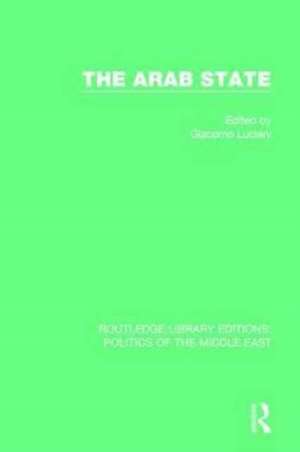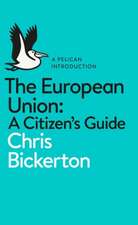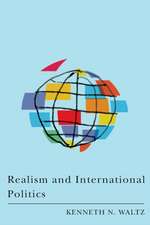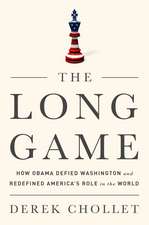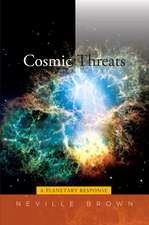The Arab State: Routledge Library Editions: Politics of the Middle East
Editat de Giacomo Lucianien Limba Engleză Paperback – 12 dec 2016
| Toate formatele și edițiile | Preț | Express |
|---|---|---|
| Paperback (1) | 330.57 lei 6-8 săpt. | |
| Taylor & Francis – 12 dec 2016 | 330.57 lei 6-8 săpt. | |
| Hardback (1) | 1285.17 lei 6-8 săpt. | |
| Taylor & Francis – 20 iul 2015 | 1285.17 lei 6-8 săpt. |
Din seria Routledge Library Editions: Politics of the Middle East
- 13%
 Preț: 323.44 lei
Preț: 323.44 lei - 12%
 Preț: 327.58 lei
Preț: 327.58 lei -
 Preț: 303.92 lei
Preț: 303.92 lei - 12%
 Preț: 327.58 lei
Preț: 327.58 lei - 12%
 Preț: 325.34 lei
Preț: 325.34 lei - 13%
 Preț: 297.62 lei
Preț: 297.62 lei - 13%
 Preț: 295.10 lei
Preț: 295.10 lei - 12%
 Preț: 300.01 lei
Preț: 300.01 lei - 13%
 Preț: 322.51 lei
Preț: 322.51 lei - 13%
 Preț: 297.15 lei
Preț: 297.15 lei -
 Preț: 320.36 lei
Preț: 320.36 lei - 12%
 Preț: 325.34 lei
Preț: 325.34 lei - 12%
 Preț: 325.34 lei
Preț: 325.34 lei -
 Preț: 457.14 lei
Preț: 457.14 lei -
 Preț: 310.67 lei
Preț: 310.67 lei - 12%
 Preț: 329.14 lei
Preț: 329.14 lei - 12%
 Preț: 325.84 lei
Preț: 325.84 lei - 12%
 Preț: 299.52 lei
Preț: 299.52 lei - 12%
 Preț: 329.26 lei
Preț: 329.26 lei - 12%
 Preț: 326.29 lei
Preț: 326.29 lei -
 Preț: 284.52 lei
Preț: 284.52 lei
Preț: 330.57 lei
Preț vechi: 374.36 lei
-12% Nou
Puncte Express: 496
Preț estimativ în valută:
63.27€ • 66.48$ • 53.18£
63.27€ • 66.48$ • 53.18£
Carte tipărită la comandă
Livrare economică 12-26 martie
Preluare comenzi: 021 569.72.76
Specificații
ISBN-13: 9781138923171
ISBN-10: 1138923176
Pagini: 484
Dimensiuni: 156 x 234 x 32 mm
Greutate: 0.7 kg
Ediția:1
Editura: Taylor & Francis
Colecția Routledge
Seria Routledge Library Editions: Politics of the Middle East
Locul publicării:Oxford, United Kingdom
ISBN-10: 1138923176
Pagini: 484
Dimensiuni: 156 x 234 x 32 mm
Greutate: 0.7 kg
Ediția:1
Editura: Taylor & Francis
Colecția Routledge
Seria Routledge Library Editions: Politics of the Middle East
Locul publicării:Oxford, United Kingdom
Public țintă
Postgraduate and UndergraduateCuprins
1. The Origins of the Arab State System Iliya Harik 2. ‘Strong’ and ‘Weak’ States: A Qualified Return to the Muqaddimah Ghassan Salame 3. Allocation vs. Production States: A Theoretical Framework Giacomo Luciani 4. The Rentier State in the Arab World Hazem Beblawi 5. Policies for Development: Attitudes toward Industry and Services Michel Chatelus 6. Arab Bureaucracies: Expanding Size, Changing Roles Nazih Ayubi 7. Social Structure and Political Stability: Comparative Evidence from the Algerian, Syrian and Iraqi Cases Jean Leca 8. Arab Military in Politics: from Revolutionary Plot to Authoritarian Regime Elizabeth Picard 9. Opposition as Support of the State I. William Zartman 10. Notions of the State in Contemporary Arab-Israeli Writings Fahmi Jedaane 11. Arab Regimes: Legitimacy and Foreign Policy Adeed Dawisha 12. The Impact of Palestine on Arab Politics Walid Kazziha 13. Economic Interdependence and National Sovereignty Samir Makdisi 14. Immigrants in the Arab Gulf Countries: ‘Sojourners’ or ‘Settlers’? Georges Sabagh 15. Migration and Political Integration in the Arab World Sharon Stanton Russell 16. The Politics of Arab Integration Giacomo Luciani and Ghassan Salamé
Descriere
It has often been argued that Arab states are arbitrary political creations, lacking historical or present legitimacy. This book, first published in 1990, provides a different picture of ‘the Arab state’, drawing on historical, economic, philosophical and sociological perspectives to give a balanced and convincing view of the complex reality of contemporary Arab politics. The contributors, from the Arab countries, from Europe and the United States, investigate the roots of the nation state in the Arab world, evaluating in particular the economic bases of individual states. They discuss the evolution of Arab societies and the way this is reflected in different states, and examine the problems of domestic and international integration in the Arab context. Original and comprehensive in its findings, this is an essential text on the fundamental political structure of the Arab world. Its interdisciplinary breadth makes possible an entirely new reading of the political reality of the Middle East.
